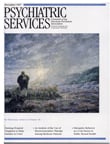The Learning About Myself (LAMS) program is a psychoeducational program that provides an excellent combination of didactic and experiential activities to help at-risk parents—that is, parents at risk of abusing or neglecting their children because they lack effective parenting, coping, housekeeping, and social skills—to learn the necessary life skills they need to be better parents. Instead of concentrating solely on improving parenting skills, the LAMS program focuses on the parent as a person, helping the person achieve greater self-esteem, a more positive and assertive attitude, better relationships with others, and more confidence to make changes in his or her life.
The book contains detailed information on how to set up and run a LAMS program, structured as 12 to 15 weekly group sessions of two and a half hours each. For each session the author lists the goals for the week, the materials needed to conduct the session, and detailed step-by-step instructions for all didactic and interactive activities, with suggested time allowances for each activity.
To keep participants interested and engaged, the program uses a combination of weekly affirmations, readings, exercises, role-plays, games, videos, craft activities, demonstrations, and guest speakers. Alternate activities and resources are offered, along with suggestions for finding resources in the reader's own area. Potential obstacles such as child care, transportation, and money for supplies are also addressed. Because each week's curriculum can stand alone, there is the added flexibility of changing the order of the sessions without compromising the program's effectiveness.
A valuable feature is that the program can be used with persons who have difficulties with reading comprehension or writing, as all written materials are read aloud in the sessions. The program does an excellent job of using interactive activities to help participants make sense of often-complicated cognitive-behavioral concepts such as negative self-talk. A graduation certificate awarded on completion of the program helps participants feel a sense of accomplishment.
Because the weekly curriculum can be tailored to the needs of the group and is adaptable to all ages and both sexes, the program could work well in a variety of therapeutic settings—as a supplement to individual or group counseling, as part of adult or adolescent day treatment programs, or in a psychoeducational support program. It could be beneficial to parents and nonparents alike, helping individuals plan realistic education and employment goals, learn basic budgeting and homemaking skills and proper nutrition, and improve hygiene and appearance.
According to the author, group facilitators need only "a general understanding of basic social work or psychological principles and some life experience," and thus the LAMS program does not have to be directed by a therapist. However, the facilitator has the ultimate responsibility of conveying the weekly curriculum in the most interesting way possible for the program to be effective, and for dropout rates to be low.
The LAMS program originated in the intensive family preservation unit of the Texas Department of Protective and Regulatory Services-Child Protective Services in Fort Worth. The program was originally developed by Ms. Rickard to help mothers involved with child protective services. Ms. Rickard has been working with high-risk abusive and neglectful families since 1979, and her many years of experience are certainly reflected in this well-designed and thoughtful program.

